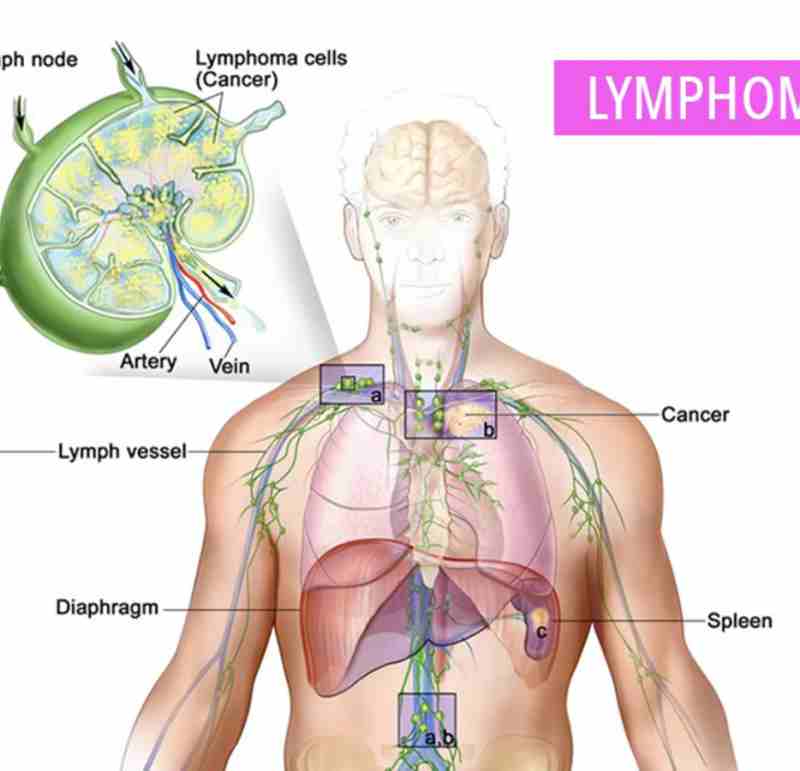Health
Iron Deficiency Anemia in Liver Disease

Imagine your body as a complex city, and your blood is the delivery service. Now, if there's a shortage of delivery trucks (red blood cells), your organs don't get the oxygen they need. That's exactly what happens in iron deficiency anemia—and when paired with chronic liver disease, things get even trickier.
In this article, we're breaking down this medical issue into bite-sized, easy-to-understand pieces. We'll talk about what it means, why it happens, how it feels, and what can be done about it. Plus, if you're searching for the best liver transplant specialist in Delhi, we’ll point you in the right direction.
. What is Iron Deficiency Anemia?
Let's start simple. Iron deficiency anemia happens when your body doesn't have enough iron to produce healthy red blood cells. These cells carry oxygen to every part of your body. Without enough of them, you may feel tired, weak, and even dizzy.
It's like trying to run a marathon without any fuel in your tank. You won't get very far.
2. Understanding Chronic Liver Disease (CLD).
The liver is one of the body's most hardworking organs-- it filters toxins, helps with digestion, stores vitamins, and does much more. Chronic liver disease (CLD) means the liver is damaged over time, often from conditions like hepatitis, fatty liver, or alcohol-related issues.
Over time, this damage builds up and may lead to cirrhosis, where the liver becomes scarred and less effective.
3. The Connection Between Anemia and Liver Disease.
So how do these two conditions connect?
When the liver is damaged, several things happen:.
It doesn't store iron properly.
It can't produce proteins that help build red blood cells.
It causes inflammation that disrupts how the body uses iron.
This results in iron deficiency anemia becoming a common sidekick of liver disease.
4. Why Iron Matters for Your Body.
Iron is like the engine oil of your body-- it keeps everything running smoothly. Without enough iron:.
Oxygen doesn't get to tissues.
The brain doesn't function optimally.
Your muscles get tired more easily.
You may also feel breathless, cold, or even have strange cravings like eating ice (yes, it's a real thing called pica).
5. How Does Chronic Liver Disease Cause Iron Deficiency?
Chronic liver disease affects iron levels in several ways:.
Bleeding in the digestive tract, often from swollen veins (varices), leads to iron loss.
Poor absorption of iron due to damage in the intestines.
Frequent blood tests or procedures can reduce iron over time.
This constant loss adds up and leads to anemia.
6. Common Symptoms You Shouldn't Ignore.
Here's what to watch for if you think you or a loved one may be affected:.
Constant fatigue.
Shortness of breath.
Pale skin.
Cold hands and feet.
Dizziness or headaches.
Rapid heartbeat.
If you or someone you care for has liver disease and feels any of these, it's time to get tested.
7. Who is Most at Risk?
You might be more likely to face this problem if:.
You have cirrhosis or advanced liver disease.
You've had frequent internal bleeding (especially in the stomach or intestines).
You're on certain medications (like NSAIDs or anticoagulants).
You've had a liver transplant or are waiting for one.
In Delhi and elsewhere, specialists often see patients with these combined issues.
8. How is Iron Deficiency Anemia Diagnosed?
Good news-- this isn't a guessing game. Doctors can find out what's wrong with a few simple tests:.
Complete Blood Count (CBC)-- Checks your red blood cells.
Serum Ferritin Test-- Measures iron stores in the body.
Iron Studies-- Look at iron binding and transport in the blood.
Endoscopy or colonoscopy-- To look for internal bleeding.
If you're in Delhi, don't wait too long to get these done. The best liver transplant specialist in Delhi will ensure accurate diagnosis and guide the next steps.
9. Simple Lifestyle Tips to Manage Iron Levels.
While treatment is key, small changes in your routine can help a lot:.
Eat iron-rich foods like spinach, red meat, lentils, and beans.
Pair iron with Vitamin C (like in oranges or tomatoes) for better absorption.
Avoid drinking tea or coffee with meals, as they reduce iron uptake.
Cook in cast-iron pans-- yes, it really works!
10. When to See a Liver Specialist.
Not every case of anemia means something serious-- but when it's paired with chronic liver issues, you need expert care.
Look out for:.
Persistent fatigue despite good diet.
Worsening liver test results.
Weight loss or swelling in the legs.
Yellowing of skin or eyes (jaundice).
These are signs that it's time to consult the best liver transplant specialist in Delhi, especially if you're considering advanced treatments or surgery.
11. The Role of Iron Supplements and Diet.
Doctors might recommend oral iron tablets or even intravenous (IV) iron therapy if you're very low. But it's not always enough. In chronic liver cases:.
Oral supplements may not work due to poor absorption.
IV iron is often more effective and faster.
Never self-medicate-- too much iron can actually harm your liver further.
12. Complications if Left Untreated.
Ignoring iron deficiency in liver disease can be dangerous:.
Your heart has to work harder, risking heart failure.
Your liver may decline faster.
It increases the chances of hospitalization and serious infections.
That's why early detection and treatment are crucial.
13. Treatment Options: From Pills to Transplants.
Depending on how severe your condition is, doctors may suggest:.
Iron therapy (oral or IV).
Blood transfusions in severe cases.
Endoscopy to stop internal bleeding.
Liver transplant, if liver damage is beyond repair.
And when transplant is on the table, finding the best liver transplant specialist in Delhi becomes a top priority.
14. Choosing the Best Liver Transplant Specialist in Delhi.
Here's what to look for:.
Experience with liver transplants and anemia management.
Patient success stories.
Hospital reputation and post-surgery care.
Advanced diagnostic and surgical tools.
Delhi is home to some of India's top liver transplant experts. Don't hesitate to seek a second opinion or visit a reputed liver care center.
15. Living Better With Liver Disease and Anemia.
This condition might sound scary, but many people live full, happy lives with the right care.
Tips to feel better every day:.
Stick to a healthy, liver-friendly diet.
Avoid alcohol completely.
Take prescribed medications regularly.
Get enough sleep and rest.
Keep all follow-up appointments.
Remember, you're not alone in this journey. With the right guidance, support, and care, you can manage both liver disease and anemia effectively.
Conclusion.
Iron deficiency anemia and chronic liver disease often go hand in hand-- but they don't have to take over your life. By understanding what's happening in your body, taking early action, and consulting the right specialists, you can stay one step ahead.
If you're in Delhi and facing liver issues, make sure to consult the best liver transplant specialist in Delhi to get the care you deserve.
FAQs.
1. Can iron supplements cure anemia in liver disease?
Not always. While iron supplements help, liver disease may affect how your body uses or absorbs iron. In such cases, IV iron or other treatments might be needed.
2. Is a liver transplant the only solution for chronic liver disease with anemia?
Not necessarily. Many cases are managed with diet, medication, and monitoring. Transplants are considered in advanced stages.
3. How long does it take to recover from iron deficiency anemia?
With proper treatment, most people start feeling better in a few weeks, but full recovery may take months, especially if liver disease is involved.
4. What foods are best for iron deficiency if I have liver disease?
Lean red meats, lentils, spinach, tofu, pumpkin seeds, and Vitamin C-rich fruits like oranges help boost iron naturally.
5. How do I find the best liver transplant specialist in Delhi?
Look for top-rated hospitals, read patient reviews, check the specialist's credentials, and don't hesitate to get a second opinion.
Source:
Click for the: Full Story
You might like













 Close Menu
Close Menu